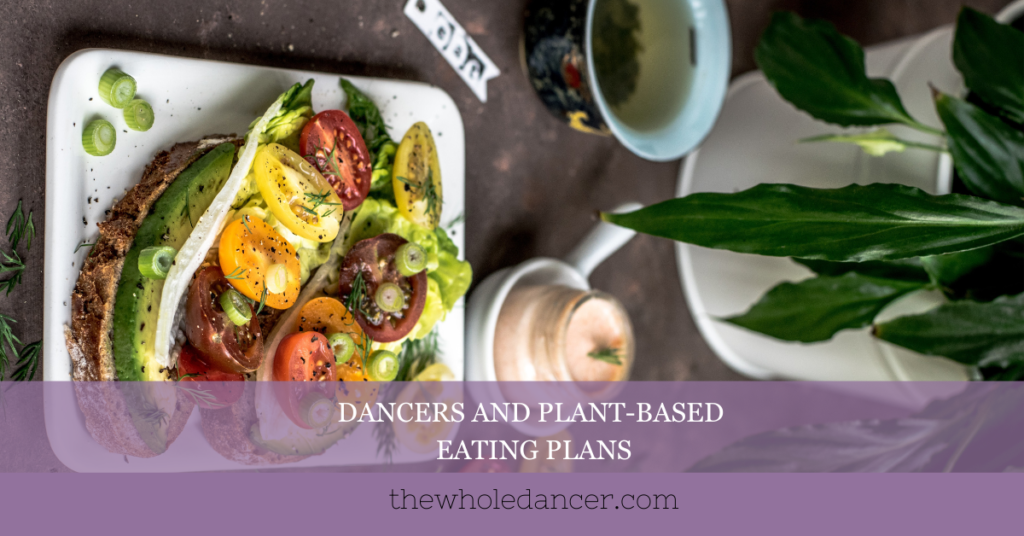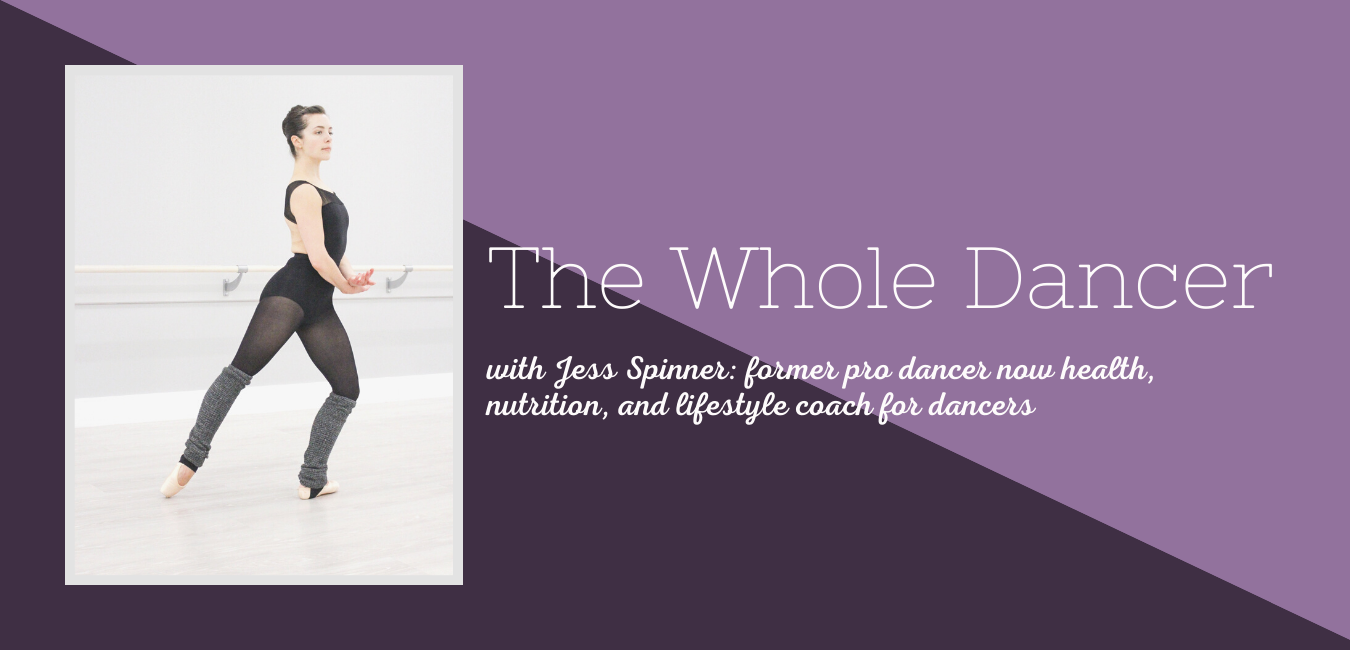Nutrition Considerations for Vegan and Vegetarian Dancers
Dancers and plant-based eating plans.
Plant-based eating plans can 100% work for dancers. However, it may require a little extra intentionality to ensure you’re getting enough overall nourishment and meeting your micronutrient requirements.
All dancers should educate themselves on sports-focused nutrition; the vegan and vegetarian dancers aren’t alone in this. Whatever eating style you ascribe to, there’s potential that you’ll overdo it in some areas and miss out in others.
The most common way dancers create shortcomings in meeting their nutritional needs is by not eating enough. When you under eat, it’s easy to end up undernourished.
Switching to a plant-based diet.
I was vegan for a long time, nearly a decade. I started moving towards veganism while I was dancing in an effort to cut out more and more foods. Following a vegan eating plan meant there were a lot of social situations where I could say, “Sorry, nothing here is vegan,” and get out of eating altogether.
So, if you have decided to be vegan or vegetarian, it’s essential that you ask yourself: why? Are you making this shift for environmental reasons? Animal welfare? Because your research has told you it’s healthier? If you feel strongly in your conviction for any or all of those reasons, then it may be the path for you right now.
Pay close attention to how you feel and stay incredibly mindful of your true motivation. If there’s even a hint of a restrictive mindset attached, it’s time to reevaluate.

Release the need to label yourself as vegan or vegetarian.
This is another thing I learned from personal experience and have seen again and again with my dancer clients: if you put a label on yourself like vegan or vegetarian and share that with others, it will impact your food choices.
If you’re following a vegan diet and suddenly you feel a strong desire to eat some eggs, that could be your body telling you something. If you ignore that signal because you must be 100% vegan, you might end up missing out on some necessary nourishment.
I suggest not labeling yourself at all. Allow yourself to eat what you wish, whenever you want, even if you happen to eat a lot of plants and avoid meat, dairy, and most animal products. That way, you’re truly giving yourself the space to listen to your body and to become an expert on your own personal needs.
Ensure you’re getting enough food.
While plant foods are exceptionally nutrient dense, they’re generally less calorically dense. So, it’s easy for plant-based dancers to under fuel. In order to ensure that you’re getting enough, many plant-based dancers will need to include lots of healthy fats.
Here are some ideas: include nuts, seeds, avocados, hemp or flax oil (rich in omega-3’s), olive oil, and avocado oil. You may also include coconut oil. While coconut oil includes saturated fat, if you’re on a vegan eating plan, it would likely be your only source of saturated fat. If you’re eating a vegetarian diet, you may have ample saturated fat sources from butter, eggs, or cheese. In that case, you may want to limit coconut oil (or the animal sourced saturated fats).
Vegan nutrition for dancers.
There are some really important nutrient considerations when eating a plant-based diet. Iron is needed to transport oxygen throughout the body to keep you energized. When most people think of iron, red meat comes to mind with few other examples. You can get plenty of iron on a plant-based diet and would benefit from including iron-rich foods like lentils, cooked spinach, and blackstrap molasses. Include sources of vitamin C (like leafy greens, citrus, or blackcurrants) when you eat your iron-rich foods for optimal absorption.
It is important to supplement B12 on most plant-based eating plans. Vitamin B12 is found naturally in animal foods, and some packaged plant foods are fortified, but supplementation is still essential for most. Vitamin D supplementation may also be necessary. This is true for all eaters as our food supply is quite low. If you’re curious about the optimal dose for your needs, have your doctor do a blood test. They can then customize a recommendation to your needs.
If your plant-based eating plan is all about the veggies and starches but undercuts important protein and fat sources, you’ll likely end up fatigued. As mentioned earlier, include those healthy fats and stay mindful of protein, iron, B12, D, omega-3’s, zinc, and iodine.
What do vegan dancers eat for protein?
Ahhh, the protein question. Meat eaters particularly love to badger vegans and vegetarians about where they get their protein. Here’s the good news, you can 100% get enough protein on a plant-based eating plan. If you’re eating some animal products (like eggs and dairy), it’s a bit easier, but it’s still possible on a fully vegan diet.
Here’s a list of 15 high-protein vegan foods. As with all things, you’ll likely be better served if you incorporate a variety of these foods. That way, you can easily add them into your meal plan throughout the day.
Dancers and plant-based eating plans.
To reiterate: the number one thing I want you to ask yourself if you’re considering a vegan or vegetarian eating plan is, “What’s my motivation?”
Before you start cutting anything out of your current eating plan, simply start by eating more plant foods. Include additional fruits and vegetables. Add in some plant-based protein sources and more healthy fats. As you start to add in more plant foods, notice how you feel.
If you start to notice favorable shifts in energy or digestion, keep it up. Then you might start eating more fully plant-based meals. Release any pressure to make drastic or overnight changes.
Eating more plant foods is a benefit to most people. See how it works for you, and remember, your best eating plan is completely unique to you. It takes time and experimentation.
